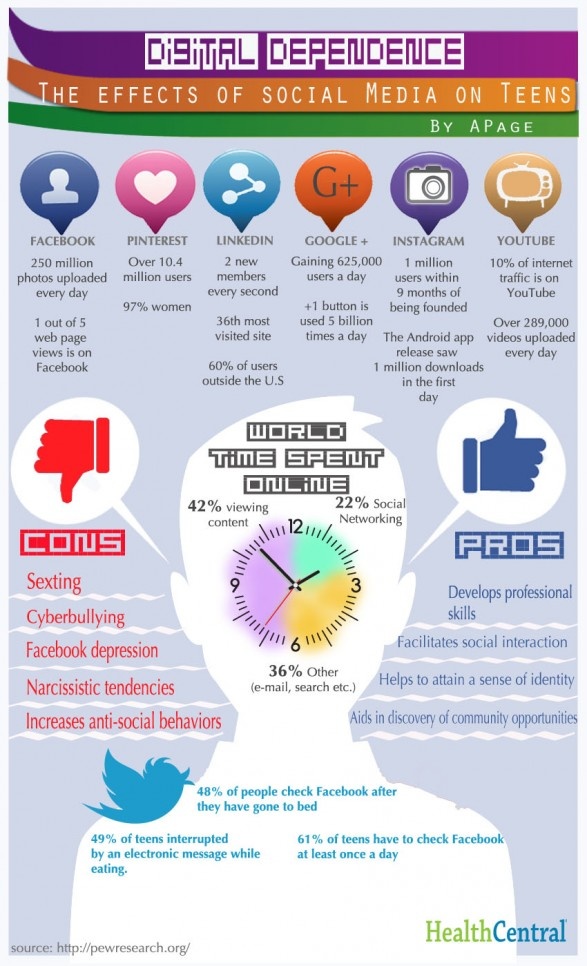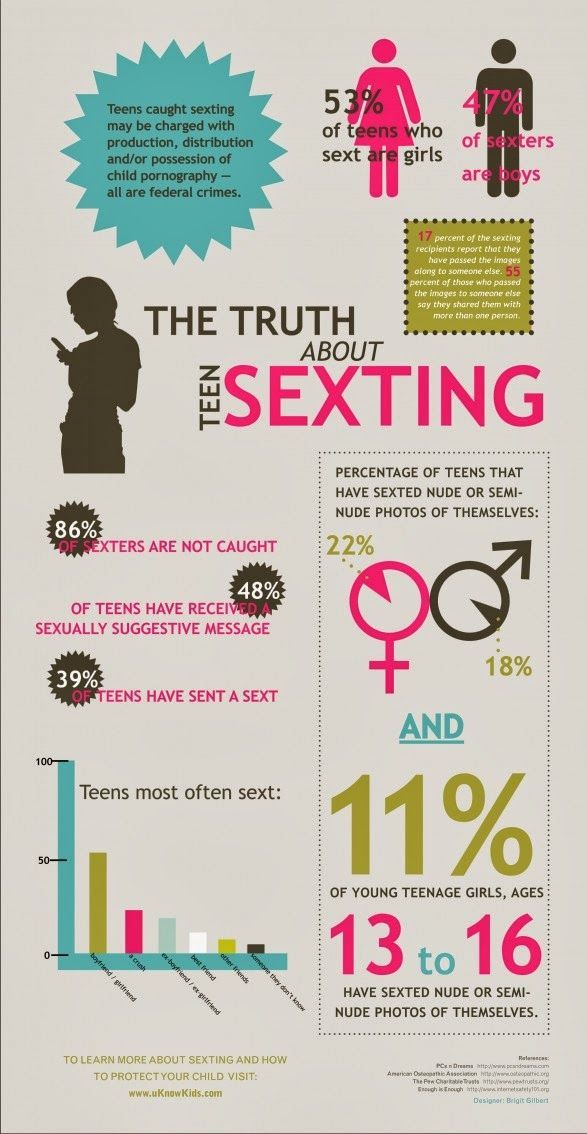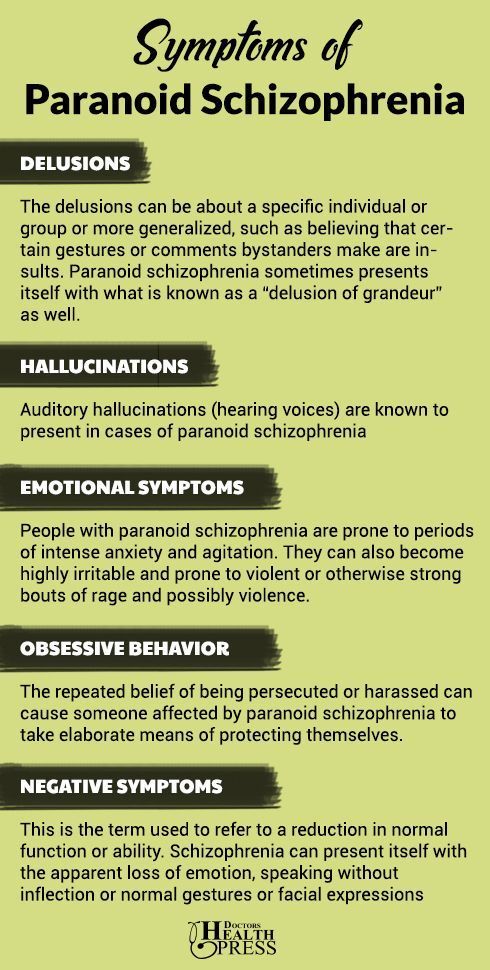Teens and sexting
Your Teen, Yes Yours, Is Sexting. Here's How to Deal
Consensual teen sexting is on the rise. A shame-free talk about safe sexting can protect your teen from legal and reputational harm.
Teens commonly feel like they might die of embarrassment when you have your first sex talk with them.
But just wait: The talk about sexting may bring new levels of mortification.
As parents, it’s important to push through these awkward feelings for the sake of protecting and guiding your children.
Before you broach the sexting discussion, though, understanding why teens are sexting and the potential ramifications are turnkey to navigating conversations about healthy sexual development and technology.
You might feel blindsided when the child you’ve raised since infancy reaches an age of sexual curiosity. But take solace that sexting is a normal and common part of sexual development these days, especially as your teen spends more time in digital spaces than any generation before.
A 2018 analysis of 39 studies found that teen sexting has increased in recent years, and trends show that the rate of sexting increases as teens get older as well.
One such study that involved 656 high school students in 2017 found that 40.5% of male teens and 30.6% of female teens had received nudes.
A 2019 review of the research also found that more often than not, sexting is consensual.
Your surprised reaction to this seemingly sudden evolution in your child is a normal part of the process, too, so don’t be too hard on yourself for being caught off guard.
If you’re from a pre-smartphone era, you may be wondering why on earth your teen would send nudes and put themselves in such a vulnerable position. There are several reasons, including:
- increased physical isolation due to the COVID-19 pandemic
- not fully developed prefrontal cortex, which navigates decision making and internalizing long-term consequences
- not fully developed limbic system, which manages impulsiveness
- hormones
- natural drive to separate themselves from parents
- drive to experiment and seek attention from peers
False security from apps that delete messages
Most teenagers don’t know life without the internet, apps, and smartphones, and that ultra familiarity can cause them to act recklessly without fully comprehending the risks of sexting — particularly with apps that claim to “erase” messages after they’ve been viewed by the recipient.
“With the development of software like Snapchat, many teens feel a sense of invisibility about their actions online,” says Kristen Adams, a licensed clinical social worker and the founder of GTX Teen Therapy.
The familiarity paired with the false sense of security while using these apps might encourage teens to send a photo or message they otherwise wouldn’t. This is where you, the parent, come in to help your teen safely navigate technology and sexuality.
Maybe you happened to be holding your teen’s phone when an erotic text message popped up.
Or maybe you were innocently scrolling through your teen’s phone looking for the family picture that they forgot to message you, and you stumbled upon a nude photo.
Whether you were actually snooping or not is beside the point. Your immediate reaction to seeing sexually explicit content on your teen’s smartphone might elicit strong, panicked feelings.
If at all possible, wait until this shock wears off before you say one word about it to your child.
In the interim you might gather more perspective on parental boundaries with teens and what to make of privacy as they age.
Then take a deep breath and start a thoughtful, two-way conversation following the tips below.
Avoid shaming your teen
Going straight to punishment and forbidding communication using a smartphone is probably not the best course of action. Your teen may simply shut you out and seek sexual exploration elsewhere.
When Erik Pham, parent and managing editor of Health Canal, discovered inappropriate messages in his teen daughter’s TikTok account, he was careful to open a dialogue instead of shaming her.
“One mistake [caregivers make] is ordering their teens to do what they want in a specific way,” he says. “Although there are times when this is needed, convincing them about the dangers of sexting isn’t one of them.”
Pham adds that, in his opinion, “what your teen does in their private time is their own business, and you won’t be able to check on them all of the time. They might even rebel and do the exact opposite just to spite you.”
They might even rebel and do the exact opposite just to spite you.”
Instead, you might consider normalizing their curiosity. Your teen may be using different methods to explore their sexuality, and many people go through this phase into sexual maturity by interacting with the world around them.
Discuss possible complications
Not shaming your teen does not mean completely supporting their actions. Just as you listen to their perspective, it’s necessary to communicate the potential harm that could result from sexting, which include:
- coercion
- blackmail
- legal ramifications
- stalking from a stranger
- state child pornography laws
- cyberbullying
Establish safe sexting practices
Digital and real life are only becoming more enmeshed. It may not be possible to completely eliminate sexting as a form of flirting among teens, but as a parent you can educate your teenager about safe sexting.
“This starts with looking at privacy settings in social media accounts and being aware of how location-based services work,” Adams says.
Don’t fall into the trap of believing that an app permanently deletes images and messages. Once it’s out there, it’s out of your control. You might be surprised how many apps have a way for a third party to screengrab.
“Talk with them about the illusion of privacy online and how easy it is to identify someone in a photo by looking at items in their bedroom, posting a picture with school colors, or wearing a shirt that has your school or city’s name,” Adams recommends.
Familiarize yourself with your state’s laws regarding the transmission of sexually explicit images of a minor. Some states have prosecuted teens for consensually sexting other teens.
Keep the conversation going
Mentioning the sexting thing once is not going to create healthy and safe sexting boundaries.
Aim to create an open environment where anything — including sexting — can organically come up. This lets you have more insight into your teen’s life and behavior.
“A conversation goes both ways, which is why it’s better to take a diplomatic approach to this,” Pham recounts from his personal experience. “It’s also much healthier, and you won’t damage or strain your relationship with your teenage child.”
“It’s also much healthier, and you won’t damage or strain your relationship with your teenage child.”
While sexting might be a healthy part of the sexual development landscape in the 2020s and beyond, that’s not to say it’s without risk and potential damage to your teen.
Your thoughtful approach is key to understanding your teen’s motivations as well as providing them with the tools and knowledge to stay safe.
“Needless to say, I trust my daughter to be smart about it, and so far she’s doing great,” Pham concludes.
Your Kid's Smartphone Habits and What You Need to Know
It’s no big secret that teens use their smartphones to remain connected. Through use of social media, texting, and videos, most teens are comfortable using technology to make plans, establish friendships, and engage in romantic relationships. Gone are the days parents picking up the phone, taking note of "suitors" asking to speak with their children. Gone are the days, for most phone users, of even having to worry about how often and how much they are talking to someone; so many phone plans are unlimited, the better for getting to know one another! Right? Modern teens can connect in an instant and from the comfort of their own bedrooms.
Enter sexting. Sexting is sending sexually explicit messages, photos, or videos via any digital device. It can include nudity, messages that discuss sex acts, or content simulating sex acts. As teens and young children increasingly carry phones and tablets on them and use social media, messaging, and other apps to communicate, the risk of exposure to sexting or explicit content is a concern among parents and educators.
A recent study published in JAMA Pediatrics showed that sexting has become more common among adolescents. Researchers examined the data on 39 previously published studies. Participants ranged in age from 12 to 17 years old, with average age of 15 years old. Results of their review indicated the following:
At least 1 in 4 teens are receiving sexually explicit texts and emails
At least 1 in 7 are sending sexts
More than 1 in 10 teens are forwarding sexts without consent
About 1 in 12 teens have had sexts they’ve sent forwarded without their consent
“When young people sext, they often lose control of the situation quickly,” explains Sue Scheff, author of Shame Nation, “Messages can easily be intercepted or forwarded to unintended recipients, which is a form of cyberbullying. ” Surprisingly, there are even times when teens use sexting when cyberbullying themselves.
” Surprisingly, there are even times when teens use sexting when cyberbullying themselves.
The consequences of sexting can extend offline. When sexts are forwarded to peers at school, in the community, and in neighboring communities, teens can face humiliation at school, on the playing field, and just about everywhere they go. This can trigger symptoms of anxiety and depression and make it difficult for teens to go about their lives feeling safe and secure. School refusal, avoiding social situations, and dropping out of extracurricular activities are all potential consequences of sexting gone wrong.
Given that the average age of getting a smartphone is 10 years old, it’s important that parents engage in open and honest communication with tweens and teens early and often. Parents can help tweens and teens learn to make positive and healthy choices about how they communicate using technology.
Talk about safe sharing online.
Tweens and teens don’t always respond well to lectures but talking about things happening in the news or in their favorite television dramas can be eye opening. 13 Reasons Why provides plenty of talking points for older teens and cases involving politicians, athletes, and other celebrities can help tweens and teens understand the long-term consequences of this behavior.
13 Reasons Why provides plenty of talking points for older teens and cases involving politicians, athletes, and other celebrities can help tweens and teens understand the long-term consequences of this behavior.
Avoid shielding them from the news and use it as an educational tool, instead. “When your kids hear news of sext crime cases, initiate a conversation. Talk about how sexting leads to negative consequences even for adults,” explains Scheff.
It’s also a good idea to be specific about what’s safe to share and what’s not. Tweens and teens need to know to turn off location sharing, keep their private information private, and to ask before they share pictures of others.
Ask about peer pressure
It’s very difficult to be the one who says no when it seems like everyone else is saying yes. Peers can be quite convincing. Ask your tweens and teens what kinds of things their peers are sharing online and if they ever feel pressured to join in. Asking questions and listening to the answers shows your tweens and teens that you are there to help and that you want to learn more about the pressures they face.
It also helps to give them a way out. “Tell them to let their friends know that their parents monitor (and/or spot check) their phones and social media, and they can’t risk losing your devices,” suggests Scheff. In taking the blame for your tweens and teens, they can get out of complicated peer situations.
Talk about what to do if they receive a sext
Tweens and teens don’t like to get their peers in trouble. Sometimes they hide things from parents to avoid being labeled as the one who alerts the adults. They also might be embarrassed or assume that it will stop if they ignore it.
Talk to your kids about getting help from a trusted adult if they receive explicit content in a message, email, or through social media. Not all tweens and teens understand that there can be legal ramifications to sending and forwarding sexts. Getting help from an adult is essential. In doing this, the tween or teen on the receiving end is supported, and the adult can take the necessary next steps.
Be open an honest
It can be very difficult for tweens and teens to come forward about this behavior, but it can be just as hard for parents to hear it. The only way to keep the door open on this topic is to listen without judgment and provide support.
Weekly check-ins on the topic make it less anxiety-producing and easier to bring up issues as they arise. Talk about communication via technology the same way you talk about who to sit with at lunch or how much homework needs to get done. When this topic is simply part of the framework of family conversation, it’s less taboo and easier to engage in.
“These conversations are about building trust,” reminds Scheff. “Our kids may always be an app ahead of us, but we will always be the adult in the family – lead by example and be there for them.”
Trust plays a vital role in communicating with teens. When teens know they can come to you for help without judgment or fear of harsh consequences, they are more likely to seek you out when they are in need.
Notes: This article was originally published November 30, 2018 and most recently updated March 8, 2021.
Sexting and teenagers: when it is dangerous and how to protect a child
The Internet has become a part of life - for us, our children and teenagers. Therefore, relationships (including love ones) automatically became part of the Internet. Our blogger, psychologist Anna Ayanyan, understands what is behind online sexting and when it turns out to be inappropriate and even illegal.
Sexting is the exchange of messages of a sexual nature. At the dawn of the development of the Internet, only the epistolary genre was available to us, now we have added the ability to transfer images and videos. Humanity is in constant transformation and search for new concepts, values, ideas about the norm. nine0003
According to modern Russian legislation, if adult capable people exchange messages of a sexual nature by mutual consent, such user activity is not a deviant practice. But if adults involve minors or incompetent people in sexting, or manipulation and blackmail are used, or it is of an undesirable intrusive nature (remember the unexpected dikpics - mailing images of genitals, usually male), such cases are not only deviant, but also illegal. . nine0003
But if adults involve minors or incompetent people in sexting, or manipulation and blackmail are used, or it is of an undesirable intrusive nature (remember the unexpected dikpics - mailing images of genitals, usually male), such cases are not only deviant, but also illegal. . nine0003
One study of cyberbullying among students showed that sexting is in third place among virtual deviant practices. When entering a university, the frequency of acts of virtual aggression against them decreased. The survey also showed that girls are more likely to be sexted than boys.
It is also believed that girls are more likely than young people to share their explicit photos. Perhaps men are more persistent. But it seems to me that the traditional initiation of sexual relations by a man is losing ground. Under the influence of emancipation, many modern women actively initiate sexual practices first. Including - they agree to be the first to send photos and messages of a sexual nature, without coercion. nine0003
nine0003
Sexting is common not only among teenagers and young people, but also very popular among adults: both in established couples and at the stage of dating and building relationships. But teenagers are still in the lead: they are more involved and therefore more vulnerable in connection with this activity in a virtual environment.
This is why it is so important to be aware of the high risks associated with sexting
Even if the sender and recipient trust each other. For example, in the event of a break in relations or if the correspondence gets to a third party, sexual information can be used for the purpose of blackmail and other illegal actions. Taking into account the age and personality characteristics of children and adolescents - impulsiveness, gullibility, orientation towards novelties and a tendency to risky behavior - it is necessary not only to control, prohibit and choose other limiting methods, but to engage in educational and preventive work to master "cyber hygiene". Cybersecurity is a very important component in the whole variety of virtual social life. nine0003
Cybersecurity is a very important component in the whole variety of virtual social life. nine0003
And, of course, it is important to observe and teach children the elementary rules of safe behavior in the virtual space. Explain to children that it is necessary to store and distribute any personal data (including intimate correspondence) responsibly. The “digital footprint” left by a person can play a significant role in the present and the future: influence the decision to hire, cause difficulties in relations with others and other negative consequences not only in virtual social, but also in real life. nine0003
The development of sexuality and sexual activity is an integral part of growing up and adult life. But despite this, the sphere of intimacy is, as a rule, if not tabooed, then censored by most modern cultures, including Russian. But, in my opinion, sexting is excluded from the scope of deviant practices, subject to the conditions - adulthood, legal capacity, voluntariness, privacy of the participants in the interaction.
And vice versa: sexting refers not only to the sphere of deviant, but also in some cases to delinquent behavior, if one of the conditions is not met. nine0003
You are in the "Blogs" section. The opinion of the author may not coincide with the position of the editors.
Illustration: Shutterstock / Alphavector
"Exchange in kind": why is teen sexting dangerous?
The Internet environment encourages teenagers to be interested in talking about sexual topics. It is much easier to overcome self-doubt and embarrassment on the Web, so it is not surprising that some teenagers prefer to meet and communicate there. At some point, the correspondence can become very frank - and then we are talking about sexting. The word “sexting” (from the English sex and texting) means communication on the topic of sex via a mobile phone or via the Internet. Participants in the correspondence can discuss sexual fantasies, send each other stories (fan fiction) on the topic of sex, take pictures of naked parts of their bodies and share with each other. nine0003
nine0003
There is nothing wrong with teenagers sharing their thoughts about sex with friends, discussing their experiences and feelings. But online correspondence has its own characteristics. The Internet is not a room where you can hang windows, but close the door with a key. Traces of our stay, whether it be personal correspondence or exchange of photos, remain in it forever. In real life, friends talked about sex and forgot, but the Network remembers everything! No one knows when and how this information could be used against a teenager, when entering a university, when applying for a job, or in a future political career. nine0003
Talking about sex with strangers on social media can be dangerous. But what if there is an adult with impure intentions on the other side of the screen? Communicating "in private", an unknown person can gain confidence in the child, trying to find out personal information and arrange a meeting. And if we consider that our children, unlike their European peers, for the most part do not tell anyone about what they have encountered on the Web, then the risk of being defenseless against criminals increases even more. Even if the situation did not unfold so dangerously, the experience of encountering pornography and obscenity in itself can seriously affect the psyche of a teenager. nine0003
Even if the situation did not unfold so dangerously, the experience of encountering pornography and obscenity in itself can seriously affect the psyche of a teenager. nine0003
What advice should parents follow?
Teach your teenager to talk about what is bothering him
Teenagers who have experienced sexting are usually left alone with this situation: most of them do nothing and do not tell either their parents or friends. They are waiting for everything to resolve itself. Encourage your teen to ask you about things they're not sure about, and to tell you immediately if they find it strange, worry or worry. nine0003
Communicate with your teenager offline
Maintain confidential communication. Be aware of his interests and problems, help in resolving difficulties in real life. Your child should have favorite hobbies in addition to the Internet, live communication with an adult who is ready to discuss with him a variety of problems, including personal, intimate ones.
Be an example
Do not store on devices that children have access to, erotic and pornographic information, explicit photos, videos, details of family life; discuss them with the child. But do not avoid discussing the topic of sex. It is better if the child gets an idea about sexual relations in the family. Otherwise, he will want to get it himself - from other (not the most reliable) sources. nine0003
Explain to a teenager how to handle personal information
Young people should understand that it is against the law to even store sexually explicit photographs of minors on their computer. Having received such an image, it is necessary to erase it and never distribute it. It is important to understand that any information that we post on the Internet or transmit in a message is immediately beyond our control and can be distributed anywhere and to anyone. nine0003
Use technology and the internet to prevent sexting
Parental controls or other blocking, filtering, and monitoring tools can help keep your child safe from unwanted experiences.














